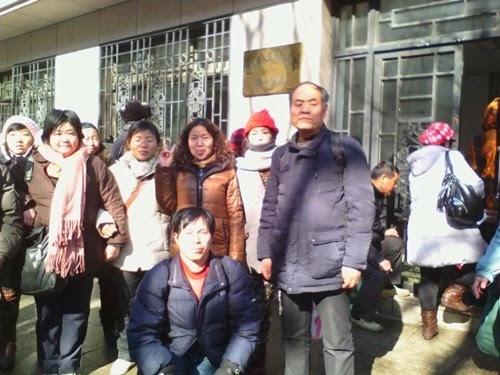
Zhang said that the police kidnapped her to a local psychiatric ward and then demolished her 1,300 square meter house in 2004. Since then, she has been traveled frequently to Beijing as a petitioner.
“Now oppression in Beijing is very severe. Anti-terrorism tactics are used on petitioners as if they are some sort of terrorists,” said Lu Qiumei, a petitioner from Linyi City, Shandong Province, in a telephone interview with the New York-based New Tang Dynasty Television.

Huang Qi, the editor of the 64 Tianwang, a well-known human rights website in China, said a large number of petitioners tried to go into the Jingxi Hotel, the hotel where the top Chinese leaders are holding the political conclave, but they were all taken away.
“There are about 6,000 petitioners at Zhongnanhai,” said Huang, reported Radio Free Asia on Oct. 20.




